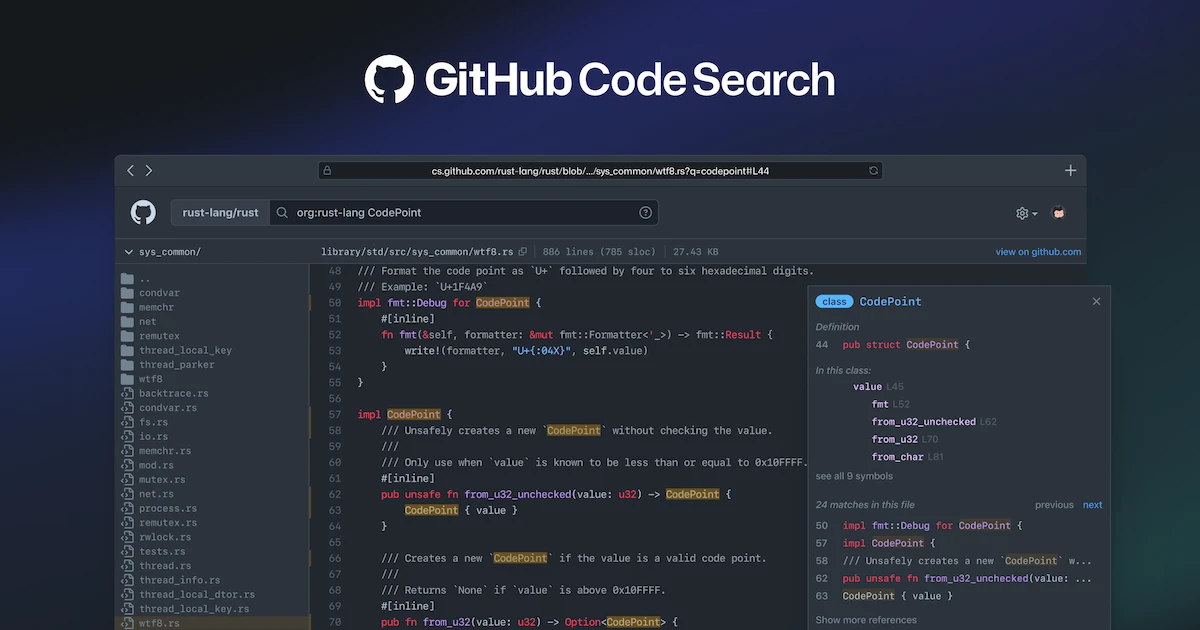IT solutions
The Impact of GitHub: Transforming the World of Software Development
Transforming the World of Software Development
17. 8. 2024
Introduction
Since its launch in 2008, GitHub has revolutionized the world of software development. By providing a platform for developers to collaborate, share code, and manage projects, GitHub has become an indispensable tool in the digital transformation journey of countless organizations. This article explores how GitHub has changed the world, highlights its most powerful recent features, discusses best practices for its use, and examines how Digital Trans4ormation leverages GitHub as a social media platform for developers.
The Rise of GitHub
GitHub was founded by Tom Preston-Werner, Chris Wanstrath, PJ Hyett, and Scott Chacon with the goal of simplifying version control and collaboration for developers. Built on Git, the popular version control system created by Linus Torvalds, GitHub provides a web-based interface that makes it easy for developers to manage code repositories, track changes, and collaborate with others.
How GitHub Changed the World
GitHub's impact on software development can be seen in several key areas:
Collaboration and Community: GitHub has fostered a global community of developers who can collaborate on projects, contribute to open-source software, and share their work with others. This collaborative environment has led to the rapid development and improvement of countless software projects.
Version Control Simplified: Before GitHub, using Git could be a complex and intimidating process for many developers. GitHub's intuitive interface made Git accessible to a broader audience, streamlining version control and making it easier to track changes, manage branches, and merge code.
Open Source Explosion: GitHub has become the home of millions of open-source projects, from small scripts to large frameworks and libraries. By providing a platform for developers to share their code, GitHub has played a significant role in the growth and success of the open-source movement.
Enterprise Adoption: GitHub's robust features and scalability have made it an attractive option for enterprises. Companies of all sizes use GitHub to manage their codebases, streamline workflows, and facilitate collaboration among distributed teams.
Powerful Recent Features of GitHub
GitHub continues to evolve, regularly introducing new features that enhance its functionality and usability. Some of the most powerful recent features include:
1. GitHub Actions
GitHub Actions is a powerful automation tool that allows developers to create custom workflows directly within their repositories. With GitHub Actions, you can automate tasks such as building, testing, and deploying code, as well as managing project workflows.
Continuous Integration/Continuous Deployment (CI/CD): Automate the process of building, testing, and deploying code, ensuring that new changes are quickly and reliably integrated into your main codebase.
Custom Workflows: Create workflows to automate repetitive tasks, such as code reviews, issue triaging, and release management.
2. GitHub Codespaces
GitHub Codespaces provides a cloud-based development environment that allows developers to start coding immediately, without the need to set up a local environment. Codespaces are customizable and come pre-configured with all the tools and dependencies needed for your project.
Instant Development Environments: Launch a development environment in seconds, complete with all the necessary tools and dependencies.
Custom Configurations: Customize your Codespace with dotfiles and configuration files to match your preferred development setup.
3. GitHub Packages
GitHub Packages is a package management service that allows developers to publish, manage, and consume packages directly from GitHub. It supports multiple package formats, including npm, Maven, RubyGems, NuGet, and Docker.
Integrated Package Management: Manage your code and packages in one place, streamlining your development workflow.
Secure and Reliable: Benefit from GitHub's security features and reliability to manage your packages.
4. GitHub Discussions
GitHub Discussions is a forum-like feature that allows developers to have conversations, ask questions, and share information directly within their repositories. This feature fosters community engagement and helps maintainers manage user feedback and support more effectively.
Community Engagement: Encourage community participation by providing a dedicated space for discussions, questions, and feedback.
Integrated with GitHub: Link discussions to issues and pull requests, keeping all relevant information in one place.
5. GitHub Advanced Security
GitHub Advanced Security provides enhanced security features to help developers identify and address vulnerabilities in their code. It includes tools for static analysis, secret scanning, and dependency review.
Code Scanning: Automatically scan your code for security vulnerabilities and coding errors.
Secret Scanning: Detect and alert on secrets (such as API keys and passwords) that are accidentally committed to your repositories.
Dependency Review: Analyze your project's dependencies for known vulnerabilities and receive alerts for potential security issues.
Best Practices for Using GitHub
To get the most out of GitHub, developers should follow best practices that enhance collaboration, streamline workflows, and ensure the quality and security of their code.
1. Effective Collaboration
Use Pull Requests: Utilize pull requests for code reviews and discussions before merging changes into the main branch. This practice helps maintain code quality and fosters collaboration.
Branching Strategy: Adopt a branching strategy, such as Git Flow, to organize and manage your development workflow. Use feature branches for new development, hotfix branches for urgent fixes, and release branches for preparing new releases.
Code Reviews: Conduct thorough code reviews to catch errors, ensure code quality, and share knowledge among team members.
2. Automate Workflows
Set Up CI/CD: Use GitHub Actions to automate your CI/CD pipelines, ensuring that code is automatically tested and deployed.
Automate Repetitive Tasks: Create custom workflows to automate tasks such as code formatting, dependency updates, and issue management.
3. Enhance Security
Enable Security Features: Activate GitHub Advanced Security features, including code scanning, secret scanning, and dependency review.
Regular Audits: Perform regular security audits of your code and dependencies to identify and address potential vulnerabilities.
Use Strong Access Controls: Implement strong access controls and permissions to protect your repositories and sensitive information.
4. Leverage GitHub Features
Use Issues and Projects: Track tasks, bugs, and feature requests using GitHub Issues and Projects. Organize and prioritize work with labels, milestones, and project boards.
Document Your Code: Maintain comprehensive documentation using GitHub's built-in Wiki or markdown files within your repositories. Good documentation helps new contributors understand your project and increases overall project maintainability.
Engage with the Community: Foster a vibrant community around your project using GitHub Discussions, contributing guidelines, and a code of conduct.
Digital Trans4ormation and GitHub as a Social Media Platform
Digital Trans4ormation, a forward-thinking technology company, leverages GitHub as a social media platform to engage with the developer community, share knowledge, and promote collaboration.
Building a Developer Community
GitHub serves as a hub for Digital Trans4ormation's developer community, where developers can collaborate on projects, share insights, and learn from each other. By using GitHub Discussions, Digital Trans4ormation creates an interactive space for community engagement, allowing developers to ask questions, share tips, and discuss industry trends.
Showcasing Open-Source Projects
Digital Trans4ormation uses GitHub to showcase its open-source projects, making it easy for developers to access, contribute to, and learn from their code. By publishing open-source software on GitHub, Digital Trans4ormation promotes transparency and encourages innovation within the developer community.
Collaboration and Knowledge Sharing
GitHub's collaboration features enable Digital Trans4ormation to work closely with external contributors, fostering a culture of knowledge sharing and continuous improvement. By using pull requests, code reviews, and issues, the company ensures that contributions are reviewed, discussed, and integrated seamlessly.
Leveraging GitHub Actions for Automation
Digital Trans4ormation uses GitHub Actions to automate its development workflows, ensuring efficient and reliable CI/CD processes. By automating tasks such as testing, deployment, and code quality checks, the company maintains high standards and accelerates its development cycles.
Security and Compliance
With GitHub Advanced Security, Digital Trans4ormation proactively addresses security vulnerabilities in its codebase. By implementing code scanning, secret scanning, and dependency reviews, the company ensures that its software meets the highest security standards.
GitHub has undeniably transformed the world of software development by providing a platform that fosters collaboration, simplifies version control, and accelerates innovation. With powerful features like GitHub Actions, Codespaces, and Advanced Security, developers have the tools they need to build high-quality, secure software efficiently. By following best practices and leveraging GitHub's capabilities, organizations can enhance their development workflows and drive digital transformation.
Digital Trans4ormation's use of GitHub as a social media platform demonstrates the potential of GitHub to build and engage a developer community, promote open-source projects, and foster collaboration. As GitHub continues to evolve, its impact on software development and digital transformation will only grow, making it an essential tool for developers and organizations worldwide.
For our Services, feel free to reach out to us via meeting…
Please share our content for further education


